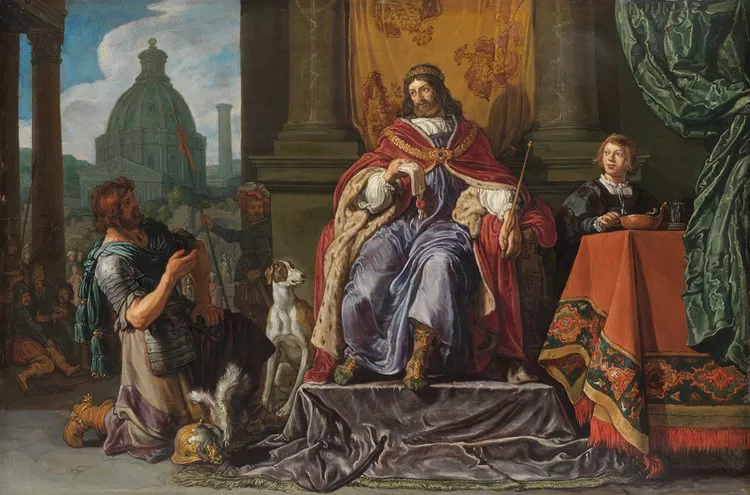The Bible, as a rich compendium of history, theology, and culture, introduces us to numerous characters, some prominent and others less so. Among these is Uri, a relatively lesser-known figure whose role and lineage are nonetheless significant in the context of biblical narrative and theology. This article explores who Uri is, the contexts in which his name appears, and the implications of his legacy in the biblical record.
Etymology and Meaning of Uri
The name Uri originates from Hebrew, and its meaning is “my light” or “light of the Lord.” This name reflects a theme of illumination, often associated with divine guidance and understanding. Hebrew names often carry theological or symbolic weight, and Uri’s name suggests an identity linked with enlightenment and divine favor.
Biblical References to Uri
Uri is mentioned explicitly in three passages in the Bible:
- Exodus 31:1-5
- Exodus 35:30-35
- 1 Chronicles 2:20
Though Uri himself does not take center stage in any particular narrative, his lineage is critical to the construction of the Tabernacle and the overarching story of Israel’s deliverance and worship.
Uri in the Context of the Tabernacle
The Lineage of Uri
Uri is introduced in the Bible as the son of Hur and the father of Bezalel. This lineage places him in the tribe of Judah, the tribe from which King David and ultimately Jesus Christ would descend. His father, Hur, is a figure associated with supporting Moses during the battle against Amalek (Exodus 17:10-12), which underscores the family’s significance in Israel’s history.
Bezalel: Uri’s Notable Son
Uri’s prominence in the biblical narrative is primarily through his son Bezalel, who was chosen by God to be the chief artisan of the Tabernacle. Bezalel was endowed with the Holy Spirit, wisdom, and skill to construct the sacred furnishings and elements of the Tabernacle, including the Ark of the Covenant (Exodus 31:1-5).
Bezalel’s craftsmanship and divine inspiration underscore the importance of Uri’s lineage. While Uri is not recorded as having a direct role in the construction, his place in the genealogy highlights his contribution to God’s plan through his offspring.
Theological Significance of Uri
A Generational Blessing
Uri represents a generational link in God’s providential plan for Israel. His position as the father of Bezalel highlights the importance of family and legacy in biblical theology. It is through Uri’s line that God equips Bezalel with unique talents, demonstrating how divine purposes are often fulfilled through family lines.
Light and Enlightenment
As “my light” or “light of the Lord,” Uri’s name may symbolically point to the spiritual enlightenment and creativity bestowed upon his son. Bezalel’s work on the Tabernacle, which included the creation of sacred items that symbolized God’s presence, can be seen as a continuation of this theme of divine illumination.
Uri in Chronicles: A Link to Judah’s Legacy
In 1 Chronicles 2:20, Uri is mentioned in the genealogy of Judah, solidifying his family’s standing among the most prominent tribes of Israel. This genealogical record reinforces the connection between Uri’s lineage and the broader narrative of redemption, as Judah’s tribe is central to the messianic promise.
Lessons from Uri’s Life and Legacy
While Uri himself is not a prominent actor in biblical events, his life offers valuable lessons:
The Power of Legacy: Uri’s significance lies in his descendants. His story reminds readers of the Bible that one’s contribution to God’s plan may not always be visible during one’s lifetime but can manifest powerfully through future generations.
God’s Sovereign Choice: Uri’s family was chosen for a unique and sacred task, highlighting how God sovereignly selects individuals and families for specific purposes. This selection underscores God’s active involvement in human history.
The Role of Supporting Characters: In God’s narrative, not everyone is a Moses or a David. Uri’s seemingly quiet role reminds believers that every person, regardless of prominence, has a part to play in the divine story.
Conclusion
Uri, though a minor figure in the biblical text, holds a position of quiet importance in Israel’s history and theology. As the father of Bezalel, the master craftsman of the Tabernacle, Uri stands as a testament to the significance of generational legacy and divine purpose. His name, meaning “light of the Lord,” aptly reflects the illumination and divine inspiration that marked his lineage.
Uri’s story encourages readers to recognize the value of faithfulness, family, and the unseen ways in which God’s plans unfold. Through Uri, we are reminded that even those who play a supporting role in Scripture are integral to the overarching narrative of God’s redemption and glory.
You Might Be Interested In:


